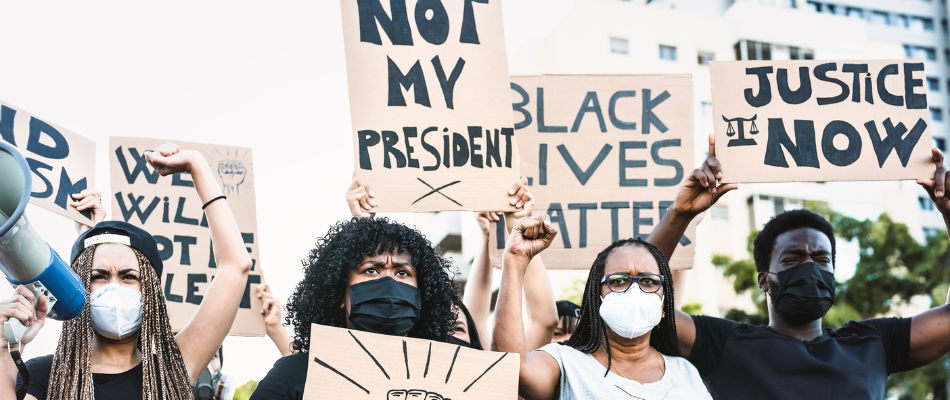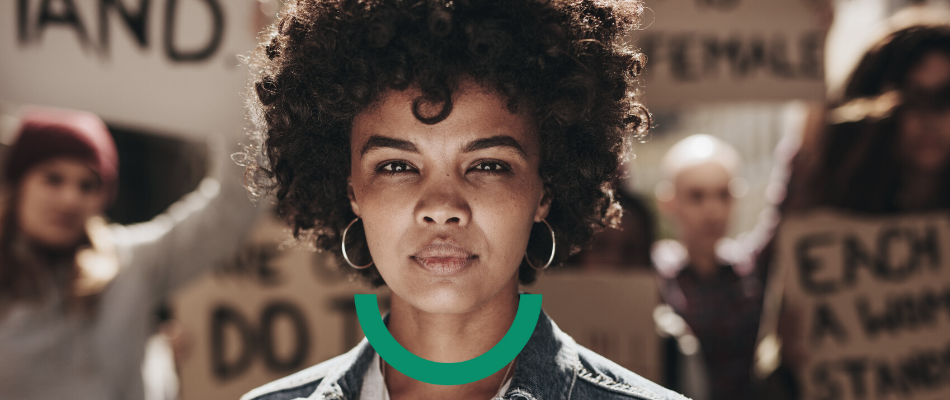What is ‘woke’?
Woke is a term used to describe awareness of the injustices in society. Woke people stand up against these injustices, and work to make changes. It’s a term many people use as an alternative to “social justice warrior” or “political activist.”
The use of the term began in the United States, but it is now used and abused right around the world. It has come to have a substantive meaning all of its own, even if some people take issue with its grammatical irritation.
Many minorities or marginalised people do not have access to the resources, life opportunities and experiences that are available to privileged people in mainstream society. They do not have access to and the use of educational and political resources.
Access to political resources means better opportunities and more chances to gain an advantage for the group to which you belong. Examples such as a home put up for sale by a black family commanding a lower offer price than the same house put up by what appears to be a white family.
Woke implies an awareness of social injustice. A woke person is someone who has a strong sense of self-awareness and supports action to deal with social issues like racism, sexism, homophobia, transphobia, Islamophobia, ableism, classism and other forms of oppression affecting marginalised groups.
Woke was popularised by the Black Lives Matter events in the United States. Woke has become a short-hand word for leftist political ideology, with a focus on social justice politics and critical race theory. The term “woke” has its roots in US Black culture but has since been removed from this origin and been co-opted as a symbol by those who push back against social justice progress.
Critical race theory is an approach to understanding race and racism. Critical race theorists argue that race is not biological, but rather socially constructed. This means that white people do not have certain privileges because they are white; instead, white people benefit from long-established systems of oppression built into institutions such as education, law enforcement and media. 
Although woke people are very diverse in terms of background, race, and gender identity: they want to campaign for social justice and equality, they want to improve their community’s quality of life, and they want to make their voices heard in a world where minorities are often ignored or negatively stereotyped by other groups.
Wokism argues that race is a socially constructed, or culturally invented category that is used to oppress and exploit people of colour. At its heart, critical theory as a mode of inquiry explores how power is gained, exercised, withheld, controlled and lost in a society or community. Critical race theorists hold that racism is inherent in the law and legal institutions of many counties insofar as they function to create and maintain social, economic, and political inequalities between whites and non-whites, or other classifications.
In Latin America the contests are between Latinx and Mestizo; in Southern Africa, the debate is between white Africans and black Africans and in some countries in the East the conflict is between immigrant Chinese and indigenous people. The oppression of Aborigines in Australia is another example. Critical race theorists are generally dedicated to eliminating all race-based and other unjust hierarchies.
When used positively, woke is a term that describes people who are aware of their privilege, the power they have over others and the negative impacts that this has on communities. People who are opposed to wokeness do not believe there are any injustices inherent in the way society functions.
Conservatives, those benefiting from the social inequality and wishing to maintain the status quo, use woke as an insult. In this derogatory context, woke means following an intolerant and disruptive ideology. Some on the right say it is political correctness gone mad. Conservatives argue that social injustice is not as bad as the wokeists make out and that wokism is an attempt by its proponents to get a free ride in society through access to work, better education, a way out of poverty and other life opportunities.
Social media has played a significant role in popularising the term woke on both the left and the right. In some cases, people use the term without any knowledge of what it actually means. In many cases, people on the right used the term woke as a catchall phrase to summarise any ideology with which they disagree.
We see this expressed in xenophobic attacks on shopkeepers, and disruptive prohibitions on immigrants. The narrative often underlying these acts can be expressed as: they will take away our jobs, they will dilute our racial/language purity, go back to your own country.
Right-wing conservatives argue that proponents of woke want to shower minorities and immigrants with undeserved privileges at the expense of the (usually white) working class. This is a dangerous argument because anti-woke disputes start with a premise that equality is a zero-sum game in which white people lose out when advancements in racial justice are made. Simply put, for the disadvantaged and vulnerable to get a leg up in society, they believe that the ruling class has to lose power, privilege and wealth.
We all want a society where we live in peace and where all citizens have the opportunity to live to their full potential. We must find new ways of communicating that bring people together around their shared material interests, such as the importance of a good quality of life and building a better world for our children.
We need to be clear about who is getting in the way of those values being realised; what social structures and legislation are impeding social progress. We have to join together despite our differences so that we can make life better for all of us, whatever our race, or current social position.
Woke might be a grammatical aberration, but at its heart, it argues for a just society in which we all can find a home. We should all support the spirit of the concept and not be misled by the reactionary outbursts of a few.







